Kathmandu, Nepal
Dear Friends:
Thanks for all the "get well" e-mails. I
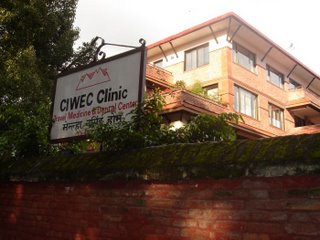 would love to answer them all but unfortunately, it takes all my energy now just to write one blog entry like this. I am so nauseous (side effect of Tinidazole), I can't be around food (have to force myself todrink tea. The doctor says no dairy products which cuts out a lot of my diet) and even walking around in this rainy season is a challenge, because everything smells.
would love to answer them all but unfortunately, it takes all my energy now just to write one blog entry like this. I am so nauseous (side effect of Tinidazole), I can't be around food (have to force myself todrink tea. The doctor says no dairy products which cuts out a lot of my diet) and even walking around in this rainy season is a challenge, because everything smells. The CIWEC Clinic
With all my illness, I have had plenty of opportunity to get to know the CIWEC Clinic. The atmosphere at CIWEC is very professional, almost yuppie. A sort of yuppie Peace Corps boutique. Their clinic complex would not look out of place in southern California... complete with SUVs in the lot. Their lab tech, Ramachandran, turns out to be one of the most respected parasitologists in the region. Anyone who's visited this region for an extended period knows the importance of identifying your intestinal beasties correctly.
Visit their web page at http://www.ciwec-clinic.com/
Most of the foreign med students and doctors are like me -
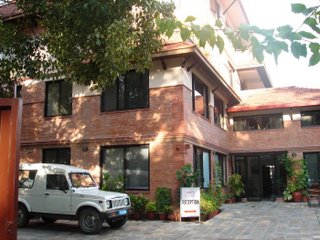 they came to Nepal years ago on a fluke and fell in love with it. Everyone falls in love with it. Then they went back home and rearranged their lives figuring out how to come back here and either get paid for it, stay on a student visa, or something. The visas here are much more restrictive than those given for India (more about that in another blog). The dentist, Dr Hollander, is a big, deep voiced gentle man from Oregon who has been coming to/living in Nepal for 25 years! He used to run the US Embassy dental clinic. He was so gentle administering novocaine, I only felt the first pinch (and this was a front tooth - very sensitive).
they came to Nepal years ago on a fluke and fell in love with it. Everyone falls in love with it. Then they went back home and rearranged their lives figuring out how to come back here and either get paid for it, stay on a student visa, or something. The visas here are much more restrictive than those given for India (more about that in another blog). The dentist, Dr Hollander, is a big, deep voiced gentle man from Oregon who has been coming to/living in Nepal for 25 years! He used to run the US Embassy dental clinic. He was so gentle administering novocaine, I only felt the first pinch (and this was a front tooth - very sensitive). The other doctors here are equally impressive. The clinic director, Dr Pandey, a Nepali woman, went to Harvard. Contrary to my previous statement, there are, in fact, a number of Nepali doctors...all western trained (ie, very upper-crust). The receptionists and nurses are a combination of those living here on an employment visa, professionals who love Nepal and chose to come work here - and students who are doing summer internships.
If there is a specialty that CIWEC doesn't cover (like my eyes), CIWEC can recommend a good reliable doctor. The eye doctors they sent me to, Dr and Dr Malla, are Nepali husband and wife who were trained in the US. (At least one of them was.) None of the authoritarian "shut up and listen to me, you are the patient" of the Indian doctors. They were very caring. They actually called to check up on me. Unheard of for any doctor, anywhere, these days!
Life Styles of the Expats
A friend asked me whether the nurses and clinic staff stay in a hostel or special housing. I don't think so - I think they have nice flats on their own. This is not difficult to get here. Unlike I
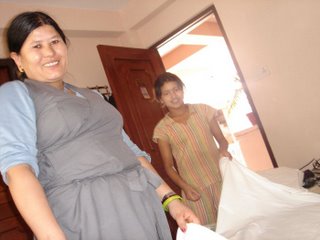 ndia, they do not mind renting to foreigners and ads in the paper even say "priority foreigners" (which has got to be some kind of discrimination, really!) and "flat or bungalow suitable for foreigners;" meaning, it is nice and clean and
ndia, they do not mind renting to foreigners and ads in the paper even say "priority foreigners" (which has got to be some kind of discrimination, really!) and "flat or bungalow suitable for foreigners;" meaning, it is nice and clean andeverything works.
Getting good help
For an average American, getting used to dealing with servants is a new experience. It is part and parcel of life in much of Asia, though. For those of us accustomed to doing everything ourselves - driving, cooking, cleaning and laundry - the social system with all its built-in middlemen (middlepersons?) takes a lot of getting used to. Often, thanks to the difference in language and work standards, it's just easier to do it yourself.
Most long-term expats, whether it is a doctor for the Embassy clinic or a teacher at the Lincoln School, has a maid or "didi"... if not a gardener, too. Lots of them are on near-US salaries so for them, to have a house with a gardener and maid for $200-300 a month is a steal. They think nothing of having a maid. It's a little weird for an American, or at least, for this American.
Therefore, when I talk about and compare maids, it doesn't mean I have struck it rich over here. Far from it. Maids, watchmen, hotel "boys" and so on are just part of even a budget traveller's life. One must learn to treat them with a careful balance of respect, friendliness and still maintain the elaborate role-playing that is all part of Asian life.
The maids in my hotel are always so good-natured and energetic, nothing like the shiftless Indian maids who just barely push the dirt around with a broom. This is why Nepali help is so popular in India. As my Garhwali friend Laxmi said to me, "These people will work." Whether it is a physician, or a maid, or a bank teller, or a bus driver, many Indians seem to have decided long ago that they were just above working. Working is beneath them. They just exude this air of, "I really am too good to be here. Your job is an insult to me."
Punjabi Sikhs are a notable exception to this. They pride themselves on being ha
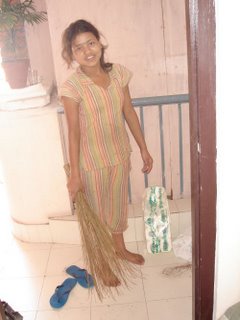 rd-working. No wonder many other Indians look down on them and make Polish-type jokes about them. How stupid, for someone to brag about working hard!
rd-working. No wonder many other Indians look down on them and make Polish-type jokes about them. How stupid, for someone to brag about working hard!Also unlike India, landlords do not charge outrageous deposits on a rental house or flat. Amazing. The only place I have been in like this in India is Koregaon Park in Pune and, to an extent, McLeod Ganj. In India they want 10 months deposit up front. And, if you move out early you do NOT get it back (some deposit!). That's in addition to the ridiculous finder's fee you must pay someone.
Everything in India is designed to make improvement impossible. For real! This is a social-levelling mechanism to keep people in their place keep the peace by ensuring that no one gets ahead of anyone. My friend Robert discovered when he painted his friend's house in a Chennai slum. After seeing the nice new paint job, the landlord decided the house was now worth more money and that he should rent it to someone else. It's a real disincentive to improving things there - If you improve it, you could actually endanger yourself.
These places - Koregaon Park, McLeod Ganj, Kathmandu - interest me because they are welcoming to foreigners, but are still mixed. That is, you will see local people other than just the rich people's maids. Of course, there is some of that but there are also local students, professionals, business owners and so on. Nepali people go to the nightclubs and restaurants. It is not intensely segregated.
Compare and contrast: south of the border
India has a much heavier class system, and a greater population with about 70% belonging to the lower castes. Always in India, you get that feeling of fending off. People are constantly fending off the Hordes Outside. Everything from the bars on the windows to the watchman with his stick at the door of every decent shoppe or restaurant...everything says Fending Off. This is best illustrated in a situation like the train trip into Calcutta. As you leave rural areas behind and enter the urban zone, it gets increasingly intense...until The Outsiders are literally reaching into the train windows from the platform outside. For what? Anything. Grabbing onto Anything At All, just to be grabbing.
I'll never forget going to Sri Lanka and being so amazed at not only the cleanliness of the railway platforms, but the fact that no one was living on them. Unheard of, in India - the railway stations are semi-0fficial homes to countless people. And the windows of Sri Lankan trains are big, and open - no bars!
In Nepal, you can let your guard down (almost literally). There are very few beggars here, comparatively. Most of the street kids are actively trying to DO something - even if it is just sell satin pocketbooks. One little kid does hand drawings in crayon and walks around"selling" them. Other teenagers hawk tiger balm, wooden flutes, and so on. At least they are trying to do something. They are far less aggressive than in India and would never follow you down the street harassing you.
It is interesting to keep in mind that Nepal is the absolute last on the SAARC list of nations economically. Below even Bangladesh. Yet they are so laid-back and relatively genteel.
The Academic Tourist
Yesterday, I met a Fulbright scholar from Harvard (!) sitting opposite me at the wireless cafe. It turns out I know his roommate, an American lady who speaks fluent Tibetan and is teaching conversational Tibetan here. Last week I met a German and a Nepali-American student here learning classical Nepali music at the university. The German girl is here on a student visa, whc. Three weeks ago I met a guy from Kentucky, Drew Bewlay, who is here doing his college internship with the newspaper The Rising Nepal (he is a photojournalism student). Kentucky is the border state with Tennessee so it was almost like meeting a next-door neighbor.
My friend Rene is here also in college - she arranged an internship with one of those companies where you pay to volunteer, but got there and didn't like it, so now she volunteers with various people all over town including the gay rights magazine, Blue Diamond Society. She extended her stay by 2 months' time and now is going to India to do commercial photography. So many interesting people doing interesting things.
In a bar last month I met 2 logisitics specialists who work for the World Food Programme, which has a major office here. They go out to rural locations and see what the situation is. How many helicopters will we need to airlift bags of rice into Mugu district? Where will we store it? Will the rats get it? Monsoon rains? Are the people so corrupt that it will all disappear before the villagers see it? And so on. Many of our conversations revolve around how to stay in Nepal, why we love Nepal, places we have been in Nepal, people we have met, stories of people we have met, what's going on politically, and whatever work we are doing (in my case I am tracking down various stories, in between breakdowns).
Kevin is an Australian pilot who works for Dragon Air HongKong. He came here for 4 weeks after his marriage broke up and spent 2 volunteering in an orphanage, which he liked even better than trekking. He told me about his last day, when two of the kids came up and said, "Mr Kevin, we don't want you to leave." Kevin is a big, manly guy, but he got a little misty telling me that story.
There are also the party-hardy type recreational tourists, but they live in rather a different world. They are a very different breed from the people who come to do something here, or to study. That's fine, because they are good for the economy and they are tolerated and even welcomed by the locals. There are also the ultra hard core adventure tourists, but they are mostly in the hills or whitewater rafting or bungee jumping off a gorge.










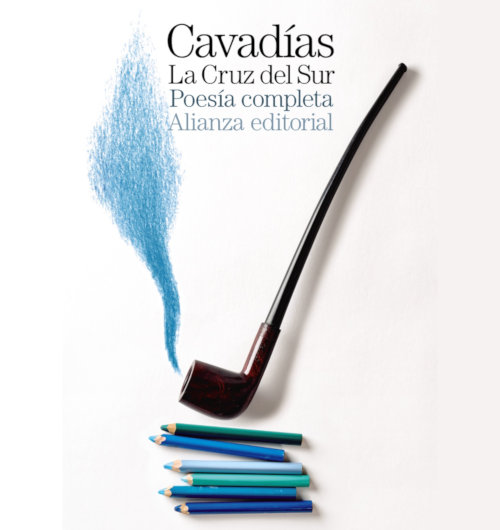



No comments:
Post a Comment